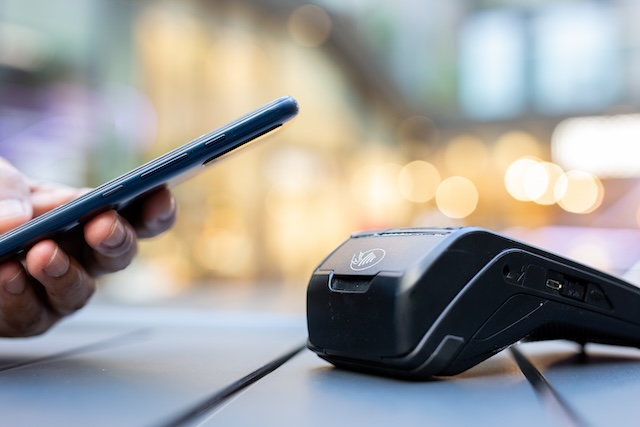Skippers are disrupting the market on their way to becoming the fabled unicorns.
Luxury fashion company Threads Styling was founded a decade ago, but many people still don’t fully understand it. It has no physical stock, no brick-and-mortar store, no e-commerce site, no 800-number, not even a mobile app. What it does have is an average basket size of $3,000 and over 250 partnerships with luxury brands, including storied names like Fendi, Cartier, Dior, and Hermès. Last fall, it raised $20 million in funding for its pioneering “conversational commerce” business model, where it provides personal shopping services for luxury fashionistas, most of them under the age of 35.
What really makes Threads unique is how its concierge shoppers and customers communicate. They don’t connect through phone calls or email; they communicate solely through Instagram and messaging apps such as WeChat and WhatsApp — making Threads one of the first “skippers,” a nimble firm that embraced innovative customer service tech from the start and never got bogged down in Old Skool technology like 800-numbers or even email.
Digital transformation across sectors: driven by consumer demands — Smart Nation Summit
Companies increasingly shifting to messaging apps to provide customer service
Threads’ model of providing “conversational commerce” where the conversations don’t take place over voice, email, or outdated web chat that times you out after 2 minutes of silence, may seem unusual to Americans, but customers in other countries understood it right away. Messaging apps have been wildly popular in Asia for years, and users can do far more on them than just send their friends and family texts. WeChat, for example, enables users to send money, book reservations, play games, and much more. Facilitating personal shopping experiences was the next natural step.
Social messaging has finally caught on with Western consumers, and it’s completely upending traditional customer service channels. Over 40 million businesses now communicate with their customers on Facebook Messenger, and Gartner had predicted that this year, requests for customer support through messaging apps will exceed those received through traditional social media.
Still, old habits die slowly. True skippers, defined by messaging customer service provider Sparkcentral as companies that skipped entire generations of customer service tech — providing customer service solely through messaging from the start – are still rare. The best-known skipper may be ride-sharing titan Uber, which has never offered customers the option of calling an 800-number hotline or sending an email; all customer service and support is accomplished through live chat embedded in their mobile app.
However, beverage retailer Dirty Lemon comes close. There’s an email address listed on their website for “general questions,” but for 24/7 service and support, customers are encouraged to send them a text; there is no option to call them. Dirty Lemon isn’t the only company pushing customers away from legacy customer service tech and towards texts and social messaging. Here are some more examples of companies that are weaning customers off calling or emailing them for support:
• Hulu strongly encourages its customers to get support by chatting with the HuluBot. It’s the first option customers see when accessing their support page. They can also access a live chat option. There is a “phone” tab, but clicking on it produces a contact form, not a phone number. No email address is listed.
• SlingTV still offers customer support by phone, but there’s a stumbling block: To access the number, customers must first fill out a form explaining their problem. Customers who wish to avail themselves of social media support or live chat can access those channels without jumping through any hoops.
• Most examples of skippers or near-skippers hail from the B2C side; phone numbers and emails are still de rigueur in the B2B sector. But SaaS developer SquareSpace is ahead of the curve. The company is open about not providing phone support at all, just email, live chat, and social support on Twitter, noting that online support is more effective, faster, and results in far better recordkeeping. With all customer interactions and issues stored in one place, all support personnel can get the big picture of what’s going on with a customer’s account, and customers do not have to repeat themselves.
Cannibalise or be eaten, how to become a disruptor
Companies that skip customer support hotlines and email meet their customers where they are
Skipping isn’t about embracing new customer service tech to prove that your company is trendy and modern; it’s about meeting your customers where they are. Businesses used to dictate how and when their customers could contact them, and customers accepted this because they didn’t have any other options. Mobile technology and on-demand everything have emboldened consumers by giving them far more buying options than ever. Today’s digital consumers demand that businesses cater to their desires, needs, and busy schedules – schedules that don’t leave time for calling an 800-number and sitting on hold, or sending an email and waiting 24 to 48 hours for a response.
In the modern marketplace, asynchronous live chat (chat that never disconnects you) and messaging are far more important to a business than an 800-number or a customer support email. New businesses that set up phones and email accounts for customer support are burdening themselves with maintaining technology that is rapidly becoming obsolete.








